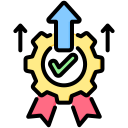Navigating the Future Trends in Digital Certifications for IT Professionals
Shorter innovation cycles, sharper validation needs
Cloud-native releases and rapid AI tooling have compressed learning horizons. Employers now want proof that maps to specific responsibilities, not generic labels. Share in the comments where your certification signal felt strong—or surprisingly weak—in real hiring conversations.
From paper certificates to living skill profiles
The classic printout on a wall is giving way to continuously updated profiles linked to projects, labs, and assessments. Recruiters prefer dynamic histories showing how you evolved skills over time, not just when you passed one big exam years ago.
Community insight drives smarter credentials
Vendors are increasingly crowdsourcing job-task analysis from practitioners who actually perform the work. If you maintain platforms or ship resilient systems, tell us which tasks truly distinguish competence. Your experiences shape tomorrow’s measurable objectives.

AI-Enhanced Assessments and Fairness by Design
Adaptive exams that meet you at your level
AI-driven item selection can adjust difficulty in real time, gauging depth rather than breadth. This reduces test fatigue while surfacing meaningful gaps. Have you taken an adaptive exam recently? Describe what felt accurate and what missed the mark.


Smarter labs without cookie-cutter tasks
Generative scenarios can spin up unique, practical exercises per candidate—no more memorized answer keys. When every lab is slightly different, cheating is harder, and authentic problem-solving shines. Would this make you feel more confident in results?
Microcredentials and Stackable Pathways
Granular badges reflect real job tasks
Short, hands-on microcredentials map to discrete responsibilities, like hardening Kubernetes clusters or optimizing Terraform modules. They validate the work you actually do, not theoretical trivia. Which targeted badges would most clearly show your day-to-day strengths?
Stacking toward role-based mastery
Three or four focused microcredentials can stack into a recognized role certification. This creates flexible on-ramps for career changers and specialists. Tell us which stack would best describe your journey—site reliability, data engineering, or cloud security.
Anecdote: a pivot powered by small wins
A QA engineer we interviewed stacked observability, CI/CD, and incident response microcredentials to land an SRE role. Each badge helped secure a new responsibility at work, creating a visible, progressive story of capability the hiring panel trusted.
Portable, trustworthy proofs for hiring teams
Verifiable credentials let you share cryptographically signed records that hiring systems can check in seconds. No email chains, no phone calls. If your organization screens many applicants, imagine the time saved and the reduction in fraud risk.
Interoperability through open standards
Open schemas and decentralized identifiers ensure your credential works across platforms and applicant tracking systems. Nobody wants yet another walled garden. Which standards should providers prioritize to keep your portfolio accessible and future-proof?
Own your narrative with selective disclosure
Share just the skills relevant to a role, not your entire history. Wallets enable privacy-preserving disclosures that still verify truth. Would selective, job-specific sharing help you apply more confidently while protecting sensitive information?
Ephemeral cloud sandboxes that mirror reality
Disposable environments let candidates configure networks, deploy services, and monitor systems under realistic pressure. Results reflect true competence, not memorization. Tell us which platforms and tooling you want to see represented in these lab experiences.
Automated scoring with human oversight
Scripts can validate outcomes, while assessors review reasoning and edge cases. This hybrid model balances speed with nuance. Do you prefer detailed feedback on failed steps, or a high-level score with pointers to relevant learning resources?

Continuous Certification and Skill Currency
Short challenges, micro-labs, and curated learning sprints keep skills fresh and reduce last-minute cram sessions. Would monthly, 30-minute refreshers fit your schedule better than a stressful, infrequent re-cert sitting that disrupts project deadlines?
Continuous Certification and Skill Currency
Future systems may ingest signals from code repositories, infrastructure changes, or incident retrospectives—verifying real work. Opt-in controls and privacy safeguards are essential. How comfortable are you linking professional artifacts to credential updates?
